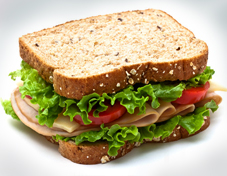Funerals are a deeply emotional time, marked by a mix of grief, remembrance, and connection. During such moments, the responsibility of hosting can add significant pressure to already overwhelmed families. Funeral catering provides a thoughtful solution, taking the logistical weight of meal preparation off the shoulders of the grieving while creating a warm and comforting atmosphere for guests.
Food has always played an important role in human connection. From celebrations to moments of sorrow, sharing a meal fosters togetherness. During funerals, catering goes beyond just feeding guests. It becomes a gesture of care, symbolising support for the family and reflecting the collective spirit of community during difficult times. A well-prepared meal also allows attendees to focus on offering their condolences and cherishing memories of the departed, rather than worrying about the practicalities of the day.
Alleviating Pressure Through Professional Catering Services
 Grief can be all-consuming, leaving little energy to tackle the myriad responsibilities that come with planning a funeral. Meal preparation, in particular, can be one of the most challenging tasks, involving extensive shopping, cooking, and serving for a large group of people. This is where professional catering becomes invaluable.
Grief can be all-consuming, leaving little energy to tackle the myriad responsibilities that come with planning a funeral. Meal preparation, in particular, can be one of the most challenging tasks, involving extensive shopping, cooking, and serving for a large group of people. This is where professional catering becomes invaluable.
By outsourcing food arrangements, families can focus on what truly matters: honouring their loved one and supporting each other through their grief. Catering services handle every detail, from sourcing fresh ingredients to preparing, delivering, and serving the food. This ensures that the event runs smoothly without placing unnecessary strain on the family.
Professional caterers also bring a level of expertise that ensures meals are not only delicious but also appropriate for the occasion. They understand portion sizes, food presentation, and the importance of timing, ensuring that guests are served seamlessly. By leaving these responsibilities to experienced hands, families gain peace of mind during an otherwise difficult time.
Food Choices That Provide Comfort
The menu at a funeral plays a significant role in shaping the atmosphere. Comfort foods, in particular, are a popular choice as they offer warmth, nourishment, and a sense of familiarity. Hearty dishes like soups, stews, and casseroles are ideal because they are filling, easy to prepare in large quantities, and universally appreciated.
Finger foods are another practical option, especially for gatherings where guests are expected to mingle rather than sit down for a formal meal. Items such as mini sandwiches, savoury pastries, and quiches are easy to handle and cater to a variety of tastes. They also minimise the need for extensive tableware, simplifying the dining experience.
Desserts and beverages are often overlooked but play an important role in providing comfort. Sweet treats like biscuits, cakes, and fruit platters can lift spirits and encourage conversation. Offering a range of beverages, including tea, coffee, and non-alcoholic options, ensures that guests remain refreshed and engaged throughout the event.
The Importance of Understanding Cultural and Religious Needs
Cultural and religious traditions are integral to funeral ceremonies, and food often holds symbolic meaning within these customs. Catering to these needs requires a deep understanding and respect for the family’s beliefs and practices.
For instance, in Hindu ceremonies, vegetarian meals are commonly served as a sign of purity and respect. Jewish mourning rituals may include specific dishes like boiled eggs and bagels, symbolising the cycle of life. In Islamic funerals, halal-certified food is a requirement, while Catholic traditions may involve fasting or certain dietary restrictions during specific periods.
Professional catering services must be equipped to accommodate these diverse requirements, ensuring that the menu aligns with the family’s cultural and religious values. This not only honours the deceased but also fosters a sense of inclusion and respect among guests from different backgrounds.
Creating a Supportive and Inclusive Atmosphere
Food is more than sustenance—it is a bridge that connects people, especially during times of mourning. Sharing a meal creates a moment of togetherness, offering an opportunity for guests to support each other, share stories, and honour the life of the deceased. This sense of connection often brings comfort to grieving families, reminding them that they are not alone in their loss.
The presence of food can also ease the emotional heaviness of a funeral. Conversations flow more naturally over a cup of tea or a plate of snacks, providing a welcome reprieve from the sombre atmosphere. A thoughtfully arranged catering setup encourages guests to mingle and engage, turning the gathering into a supportive environment where grief is shared and bonds are strengthened.
Inclusivity is another important aspect of funeral catering. Offering a variety of dishes that cater to different dietary preferences and restrictions ensures that all guests feel considered and respected. From gluten-free and vegetarian options to allergen-friendly choices, these thoughtful touches make a meaningful difference.
Customising Funeral Catering for Different Venues
The location of a funeral plays a significant role in determining the catering approach. Home-based funerals often require a more informal and practical setup. Buffets or platters are ideal in these settings, as they allow guests to serve themselves and reduce the need for formal dining arrangements. Disposable dishware may also be preferred to simplify clean-up.
For funerals held at larger venues, such as community halls or places of worship, a more structured approach may be necessary. Full-service catering options, which include staff to serve food and manage clean-up, are often the best choice. This ensures that the family can focus on their emotional needs without worrying about logistics.
Regardless of the venue, the key is to adapt the catering to fit the space and the family’s preferences. Whether it’s a simple tea station or an elaborate buffet, the goal is to provide a seamless experience that aligns with the tone of the event.
Managing Guest Expectations and Dietary Restrictions
Funeral gatherings often bring together a diverse group of attendees, each with their own dietary needs and preferences. Addressing these requirements is an important aspect of funeral catering, as it ensures that all guests feel welcome and included.
Offering a mix of dishes that cater to common dietary restrictions—such as vegetarian, gluten-free, and allergen-friendly options—is a simple yet effective way to accommodate everyone. Clear labelling of dishes can also help guests make informed choices without the need for lengthy explanations.
Communication plays a key role in managing expectations. Families can work with caterers to identify potential dietary concerns in advance, ensuring that the menu reflects the needs of their guests. This attention to detail not only demonstrates care but also creates a more enjoyable experience for everyone involved.
Affordability and Value Without Sacrificing Quality
Funeral catering doesn’t have to be expensive to be meaningful. Many families operate within tight budgets, but that doesn’t mean they need to compromise on quality. Simple, well-prepared dishes often leave a stronger impression than elaborate offerings that may feel out of place.
Bulk preparation of staple items, such as soups, salads, and sandwiches, is an effective way to manage costs while still providing variety. Buffet-style service is another cost-saving option, as it reduces the need for serving staff and extensive tableware.
The focus should always be on creating meals that feel thoughtful and genuine. By prioritising meaningful gestures over grand displays, families can create an atmosphere of warmth and care without overspending.
The Emotional Impact of Thoughtful Catering
Food has the power to evoke emotions and create lasting memories. In the context of a funeral, a thoughtfully prepared menu can become a source of comfort and connection. Attention to detail, from the choice of dishes to their presentation, reflects the care and love that the family wishes to convey.
Incorporating personal touches, such as the favourite dish of the deceased, can make the meal even more meaningful. These small gestures create a sense of intimacy, helping guests feel closer to the person being honoured. The act of sharing a meal becomes a way of celebrating the deceased’s life while offering solace to those who remain.
Long-Term Benefits of Professional Funeral Catering
The impact of professional catering extends far beyond the day of the funeral. Guests often express gratitude for the effort and thoughtfulness that went into the food arrangements, providing reassurance to the family that their loved one’s memory was honoured appropriately.
Delegating food preparation to professionals also allows families to focus on their emotional needs and the support of their community. This logistical ease creates space for healing, enabling them to fully engage with the grieving process without unnecessary distractions.
Ultimately, funeral catering is about more than just providing meals. It is a gesture of care, a symbol of community, and a source of comfort during one of life’s most difficult moments. By easing the burden of logistics, catering services allow families to focus on what truly matters: remembering, honouring, and finding solace together.




Leave a Reply